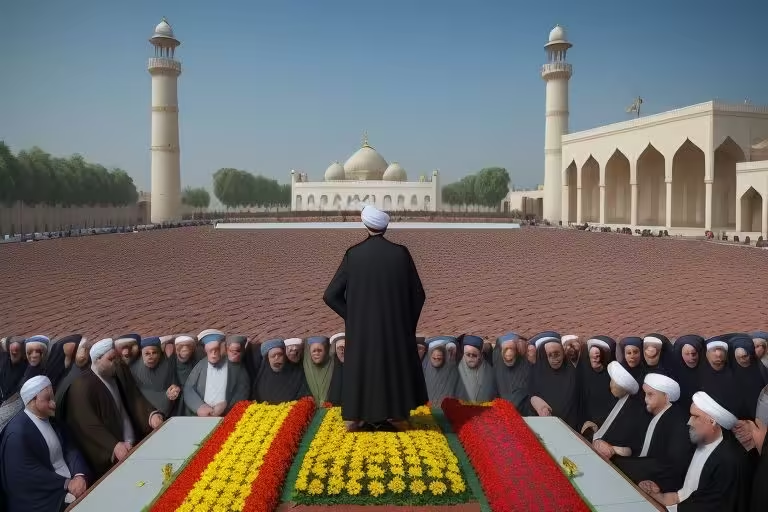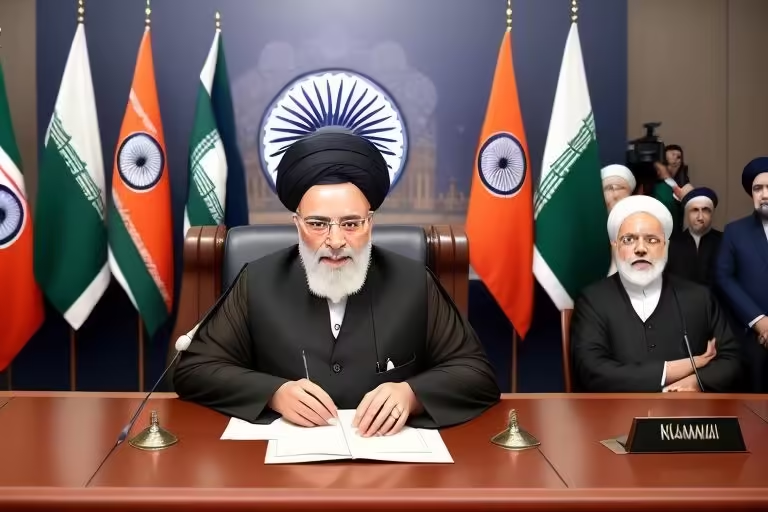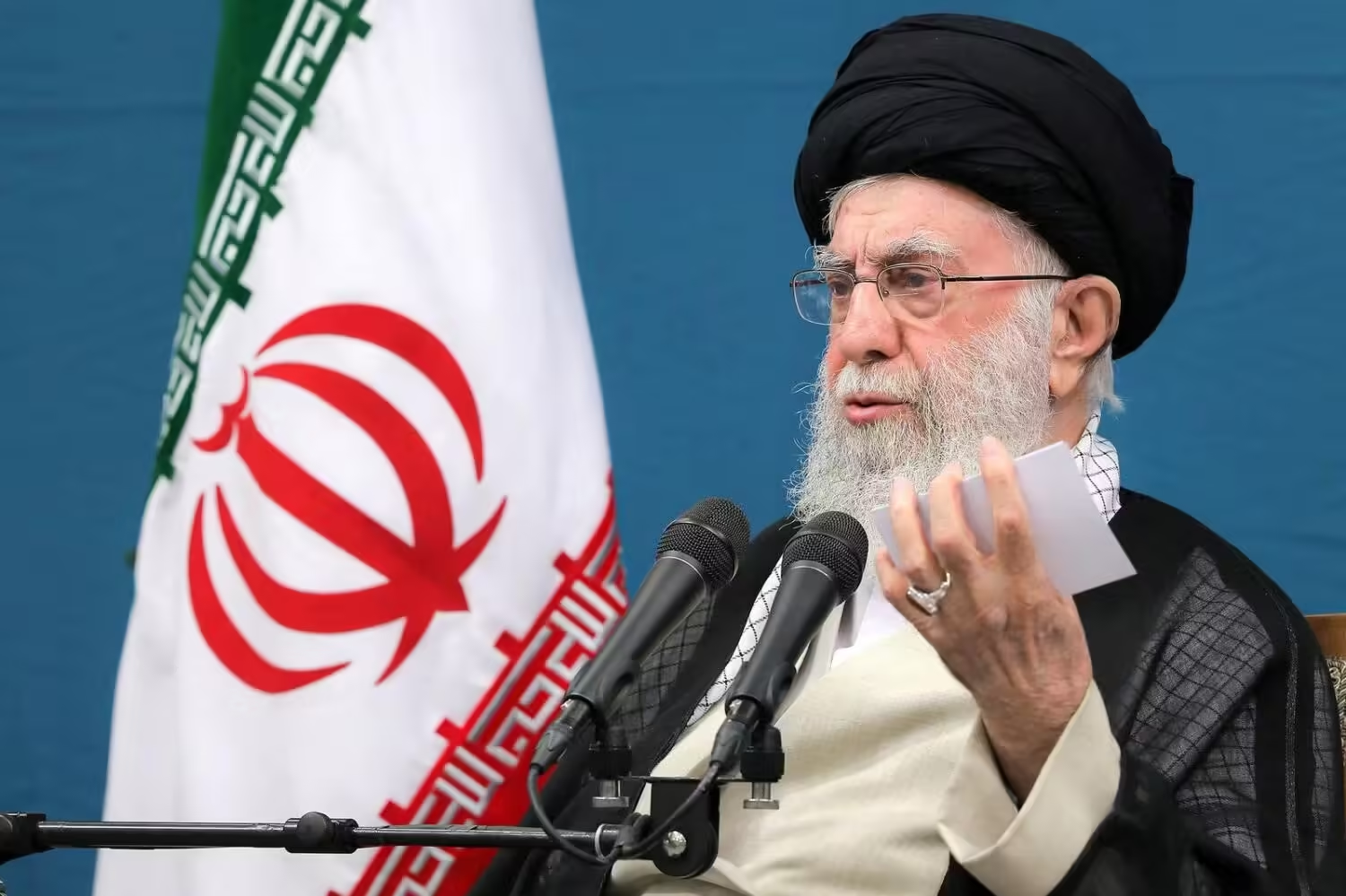India Slams Supreme Leader Ayatollah Ali Khamenei’s Remarks on Muslim Community as ‘Unacceptable’
India has expressed strong disapproval of recent comments made by Iran’s supreme leader Ayatollah Ali Khamenei, regarding the condition of Muslims in the country. In a statement issued on Monday, the Ministry of External Affairs (MEA) called Supreme Leader Ayatollah Ali Khamenei’s remarks “unacceptable” after he mentioned India, alongside the Gaza Strip and Myanmar, as places where Muslims are allegedly suffering. Khamenei’s comments, shared on social media, urged the Islamic world not to remain indifferent to the plight of Muslims in these regions. This diplomatic clash has sparked concerns over its impact on India-Iran relations, particularly as India works to maintain regional harmony and international partnerships.
Background of the Controversy

The controversy began when Ayatollah Khamenei, in a social media post, highlighted the suffering of Muslim communities worldwide, including those in India, Gaza, and Myanmar. He stated, “We cannot consider ourselves to be Muslims if we are oblivious to the suffering that a Muslim is enduring in Myanmar, Gaza, India, or any other place”. These remarks were made on the Prophet of Muslim Mohammed’s birth anniversary, a significant event in the Islamic calendar.
India’s Response to Supreme Leader Ayatollah Ali Khamenei

India’s Ministry of External Affairs responded swiftly and firmly. In an official statement, the MEA described Supreme Leader Ayatollah Ali Khamenei’s comments as “misinformed and unacceptable”. The ministry emphasized that such remarks were inaccurate and detrimental to the bilateral relations between India and Iran. “We strongly deplore the comments made regarding minorities in India by the Supreme Leader of Iran. These are misinformed and unacceptable,” the statement read.
The MEA further advised nations making critical remarks on minority treatment to examine their human rights records before casting judgment. “Countries commenting on minorities are advised to look at their record before making any observations about others,” the statement concluded.
Historical Context
This is not the first time Supreme Leader Ayatollah Ali Khamenei has commented on the condition of Muslims in India. In March 2020, he protested the religious violence in New Delhi, which led to the deaths of 53 people, mostly Muslims. He referred to the incident as a “massacre of Muslims” and called on India to confront “extremist Hindus and their parties” to prevent India’s “isolation from the world of Islam”. Additionally, in 2019, he expressed concern over the condition of Muslims in Kashmir following the revocation of its special status by the Indian government.
Impact on India-Iran Relations
India and Iran share strong bilateral relations, with significant cooperation in various sectors, including energy, trade, and infrastructure. A key element of this partnership is India’s involvement in the strategic Chabahar port, where a terminal is operated by an Indian state-run company. Despite these strong ties, Supreme Leader Ayatollah Ali Khamenei’s repeated criticisms have the potential to strain diplomatic relations.
In recent years, high-level visits and engagements have underscored the importance of the India-Iran relationship. For instance, in May 2024, Vice-President Jagdeep Dhankar visited Iran to attend an official ceremony, and in July 2024, Union Minister Nitin Gadkari attended the swearing-in ceremony of Iran’s new President, Masoud Pezeshkian.
Conclusion
The recent remarks by Supreme Leader Ayatollah Ali Khamenei and India’s strong response highlight the delicate nature of international diplomacy and the importance of mutual respect and understanding. While the comments have sparked a diplomatic clash, both nations have a history of overcoming such challenges and maintaining a cooperative relationship. It remains to be seen how this latest incident will impact the future of India-Iran relations.
More Interesting Articles
Russia’s Bold Move: Putin’s Provocative Proposal to ‘Have Sex on Breaks’ to Boost Birthrate
BAPS Swaminarayan Temple in New York Vandalized with Anti-India Graffiti
Putin and Mongolia Defy ICC Arrest Warrant: Ukraine War Briefing Amidst International
Israel Launches Major West Bank Military Operation, Resulting in Nine Palestinian Deaths
Balochistan in Turmoil: A Surge of Violence Threatens Pakistan’s Stability
Hindus in Peril: Bangladesh Hindus Descends into Religious Violence After Political Upheaval
Kursk Region: Ukrainian Military Offensive Expands, Marking a New Phase in the Conflict
Tensions Ignite: Israeli Official Declares Iran War ‘Inevitable,’ Urges U.S. Preemptive Strike
Kursk Region Gains: Top Ukrainian Commander Reveals Major Territorial Advances
Former ISI Chief Faiz Hameed Arrested: Unprecedented Court-Martial Initiated
Iconic Statue Commemorating Pakistan Army’s 1971 Surrender Vandalized in Bangladesh
Rising Tides of Protest: Hindus in Bangladesh Demand Justice Amidst Escalating Violence
Hindenburg Research Under the Microscope: Uncovering Allegations of Bias and Destabilization
Top 10 Best Performing Equity-Oriented Mutual Funds in July 2024: Unmissable Winners and Stellar
CrowdStrike and Microsoft Disruption Sparks Global Chaos: A Major Incident Unfolds
European Union to Strongly Warn Elon Musk’s X for Failing to Combat Dangerous Content
Paramount Global to Merge with Skydance Media in a Game-Changing $28 Billion Deal
AI Ascendancy: Nvidia’s Market Cap Milestone Marks New Era of Tech Dominance
Discover more from News 24 Media
Subscribe to get the latest posts sent to your email.


